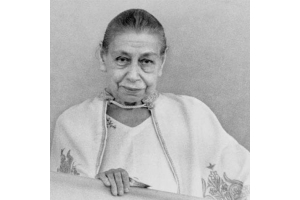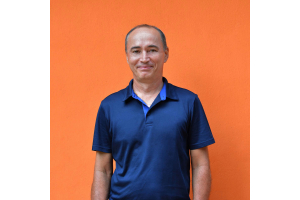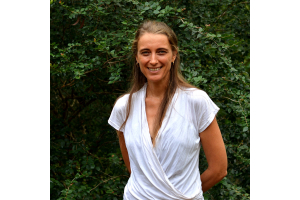The economy of Auroville

Stephan has been involved in commercial activities in Auroville for the last 25 years. In 2015, he joined auroville.com as one of the Executives of this commercial activity (which in Auroville terms is called a “Commercial Unit”). He continues to play an active role with the Auroville Board of Commerce (ABC) and weaves his experience and expertise by sharing on the topic. When asked to comment on the question of how one can be a commercial activity and function under the Auroville Foundation Act, it became clear that a common understanding of how the Act is structured and currently organized would help demystify the process for some, me included. We also discussed the greatest challenge which the Units face today and have come up with some ideas on how to address it.
In order to understand Auroville’s socio-economic lingo, one has to become savvy at using the many acronyms and appreciate each and every functions they hold. Stephan explains, “Commercial Units like auroville.com, were created to generate income for the community at large. Most of the Auroville Units, whether commercial or service oriented, belong to a Trust, which in turn belong to the Auroville Foundation. Today, there are 24 Trusts under the Auroville Foundation”.
It is important to understand that none of the Auroville Units are private enterprises. What separates a Commercial Unit from a Service Unit is that a Service Unit, by design, is an activity financially supported by Auroville’s City Services (the Auroville common pot) whereas a Commercial Unit (or profit center) is sustained financially by that activity. Each Commercial Unit is expected to contribute a minimum of 33% of its profits to the City Services, which in turn, supports the Services and Aurovilians.
Due diligence for Commercial Units is coordinated by the ABC (Auroville Board of Commerce) who also assist in the opening and closing procedures. Besides this, the ABC also recommends Executives to these Commercial Units for a probation period of two years which are then confirmed by the FAMC (Funds and Assets Management Committee). The FAMC appoints Trustees to the Trusts for a period of 5 years who are normally reappointed. These Trusts are legal entities that may open bank accounts, produce balance sheets which are then consolidated under the Auroville Foundation. The Auroville Foundation is under the HRD (Human Resource Department) in Delhi and it is audited yearly by the CAG (Comptroller and Auditor General of India). This systemized and detailed process allowed Auroville to play an active role in the region as a financial gateway of transparency and accountability for funds to be well spent after the tragic Tsunami of 2004.
Commercial Units are expected to grow financially independent so that they may contribute to the development of Auroville and provide a “maintenance” for those Aurovilians who are actively involved in the Unit. Everyone here is an Honorary Voluntary Worker (that is even the title for foreign passport holders on their Entry Visa). Volunteers are not remunerated or salaried based on performance. Auroville can only help cover their basic needs. If their needs are higher, adjustments can be made either within the Commercial Unit or through requests submitted to the Human Resource Team (HRT).
Stephan states, “the biggest challenge in Auroville today is not access to funds or ideas – it is skilled human resources.” Auroville has a great need to invest in developing its human resource skilled economy! This could be done in many different ways. One way to grow such an initiative would be to invite professionals with these skills and incorporate their talents. Qualified experts earn well outside Auroville, so to open and encourage a dialogue of cooperation and exchange, we may need to meet their terms so that they may assist us better in building this city. Could we consider offering them access to family staff quarters (maybe through the Auroville Guest House network), let them have access to guest facilities and an opportunity for their children to go to school in our community? How about training the volunteers living here, after all, it is they who will inherit the responsibilities of running this complex project. Shall we reach out to the greater community to come together, empower and upgrade our professional arena as this township grows? Why not invest our resources in providing Vocational Training in Planning, Administrative, Analytic, Marketing, Computer and Communication skills as an educational option?
Stephan concludes “It is up to us to co-create this endeavor by bridging the Auroville wisdom acquired with the expertise and capabilities of those professionals who are “fence sitters”, curious to participate in this dream yet whose family or work obligations keep them from fully joining Auroville.”
Picture rights with outreachmedia Auroville.





